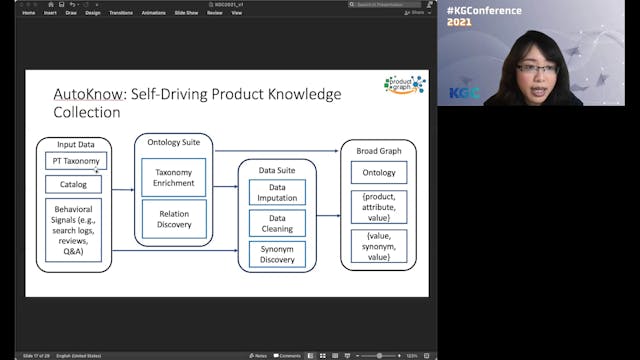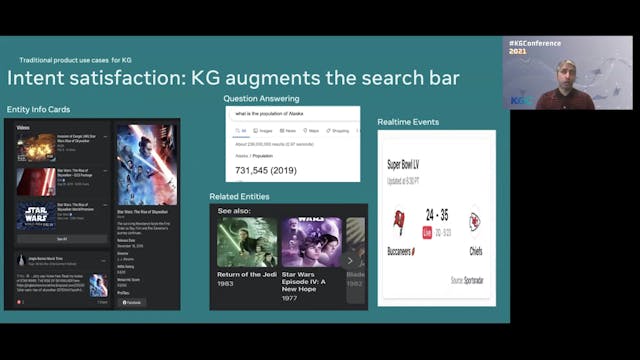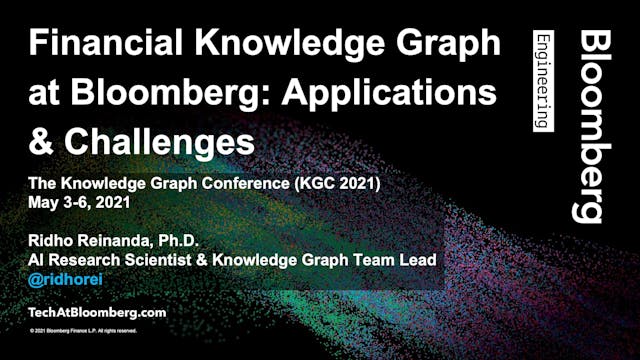Michael Cafarella | Infrastructure For Knowledge Graph Application Programming
KGC21 | Conference Only Pass
•
23m
Social Knowledge Graphs such as Wikidata have become massive successes, obtaining a level of coverage and quality that would be the envy of many traditional relational database engineering projects. And yet the downstream use scenarios for such datasets remain sharply limited compared to the vast range of relational database applications. In this talk I will present some early work that aims to make Knowledge Graph-powered applications easier to build. This work is the result of a large NSF-funded collaboration among researchers at the University of Michigan, MIT, UC Berkeley, the University of Washington, and the Allen Institute for Artificial Intelligence.
Up Next in KGC21 | Conference Only Pass
-
Xian Li | AutoKnow: Self-Driving Know...
Can one build a knowledge graph (KG) for all products in the world? Knowledge graphs have firmly established themselves as valuable sources of information for search and question answering, and it is natural to wonder if a KG can contain information about products
offered at online retail sites.... -
Shekhar Iyer | Multi-Modal Retrieval ...
Recent Advances in representation learning and application of Deep Neural Nets towards structured data and Knowledge Graphs (KG) is enabling opportunities for multi-modal representation of entities and relations. We can now aspire to build access to data encoded in knowledge Graphs through one of...
-
Ridho Reinanda | Financial Knowledge ...
The Bloomberg Knowledge Graph is a graph-centric representation of entities and relationships in the financial world which connects cross-domain data from various sources within Bloomberg. Recent developments in machine learning, knowledge graphs, and language technology have enabled intelligent ...



